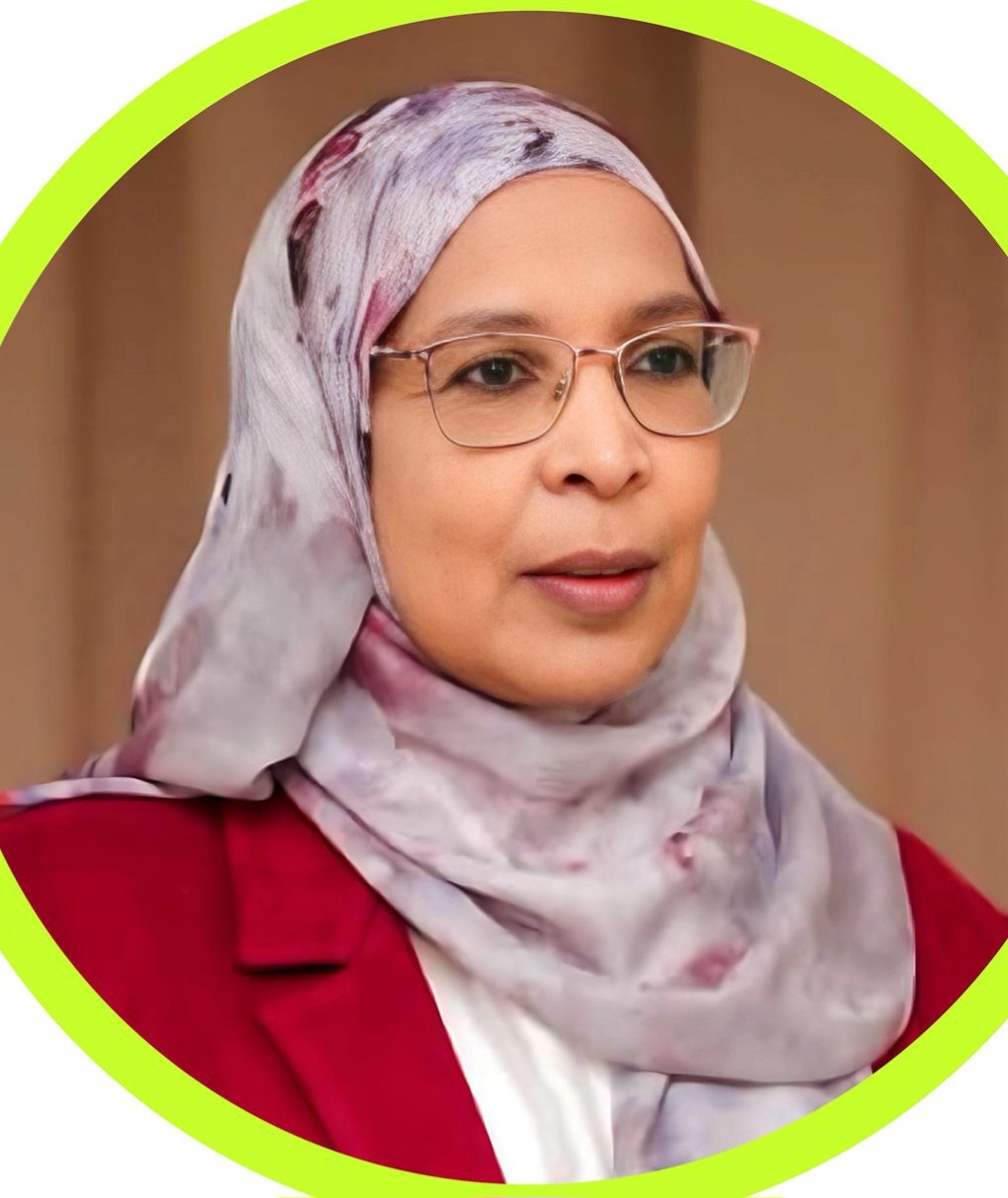
Dr. Limiaa Khalfalla is a development planner and International cooperation expert and women’s rights activist, she is a dedicated and result-driven person with a passion for achieving Sustainable Development(SDGS) and reaching win-win partnerships with donors and development partners.
Limiaa with her 30 years of experience has proven record of success in the various roles undertaken in the public and non-governmental sectors; her work with Sudanese Red Crescent gave her a unique opportunity as fresh graduate to work with underserved and hard-to-reach populations in the IDPs and refugee camps with a focus on women and girls, additionally her experience with Sudan Family Planning Association(SFPA) allows her to continue its commitment to the needy women and girls in the reproductive age.
The added value of her work with public sector institutions led to high engagement with policy and decision-making leadership at national and sub-national levels. Limiaa has also recognised as a leader and advocate for SDGs and population issues as she was in charge of the National Population Council and the National SDGs focal points in Sudan.
Limiaa has also contributed to several research works in the areas of macro-economics, women empowerment, women peace and security and mixed migration.
Limiaa ’education background qualified her to be a competent resource person in all above mentioned areas of work, she has awarded her PhD degree in sociology and social policy from the University of Nottingham, M.Sc. in Gender and Development and a basic degree in Economics and Social studies from the University of Khartoum.
Articles by Limiaa Khalfalla

Care Against All Odds: SRH Providers as Human Rights Defenders in Sudan
Can you describe the devastating consequence of deliberate attacks on health facilities and personnel in Sudan amidst the ongoing war? As you may know, Sudan has been experiencing a prolonged war since April 2023. The conflict involves Sudanese forces, allied and support troops from South Sudan, as well as foreign fighters from various neighboring countries, making it a multilayered war. The Sudanese population is suffering. Civilians are deliberately being targeted. The number of displaced people has reached 12 million in total. 3.8 million are refugees and 8.7 million are internally displaced persons (IDPs). 80% of health facilities have been destroyed or damaged. A large number of health workers have been attacked through shelling, drone strikes, and shootings, while others have been detained and arrested by soldiers. Members of our medical staff and our drivers are currently in detention. Many of our health workers and frontliners have lost family members. They shared how traumatizing this situation is for them, leaving them with significant psychological distress. In addition, they have been facing the looting of their properties. The situation is extremely critical for frontliners. Despite this, we are still committed to delivering essential services to women and girls, in particular sexual and reproductive health (SRH). Because of the war, the gap in health services, especially SRHR, is growing dramatically. Our work is life-saving. How does the conflict affect your ability to deliver life-saving SRH services?One of the heroes leading our branch at Khartoum State, Ahlam, exemplifies the resilience and determination of human spirits in the face of immense challenges. Despite the destruction of the Sudan Family Planning Office in Khartoum State, including looting a static clinic, she remained ready to her commitment to provide care. Her personal health struggles as a diabetic, combined with the psychological toll of supporting survivors of sexual violence, made her mission even more demanding. The lack of transportation, medical supplies, and health care personnel further compounds the difficulty of navigating a war-torn city. Yet Ahlam found ways to persist and make a difference. She successfully restored the health center in the Muturman area in an area called Qarari, transforming it into a vital life line for pregnant women, including those in labor, as well as survivors of gender-based violence, and patients with HIV, STIs, and malnutrition. She fostered partnerships with national and international organizations, securing essential support for displaced individuals and for those being warned. Despite overwhelming obstacles, Ahlam and her team continue to provide critical SRH services.









